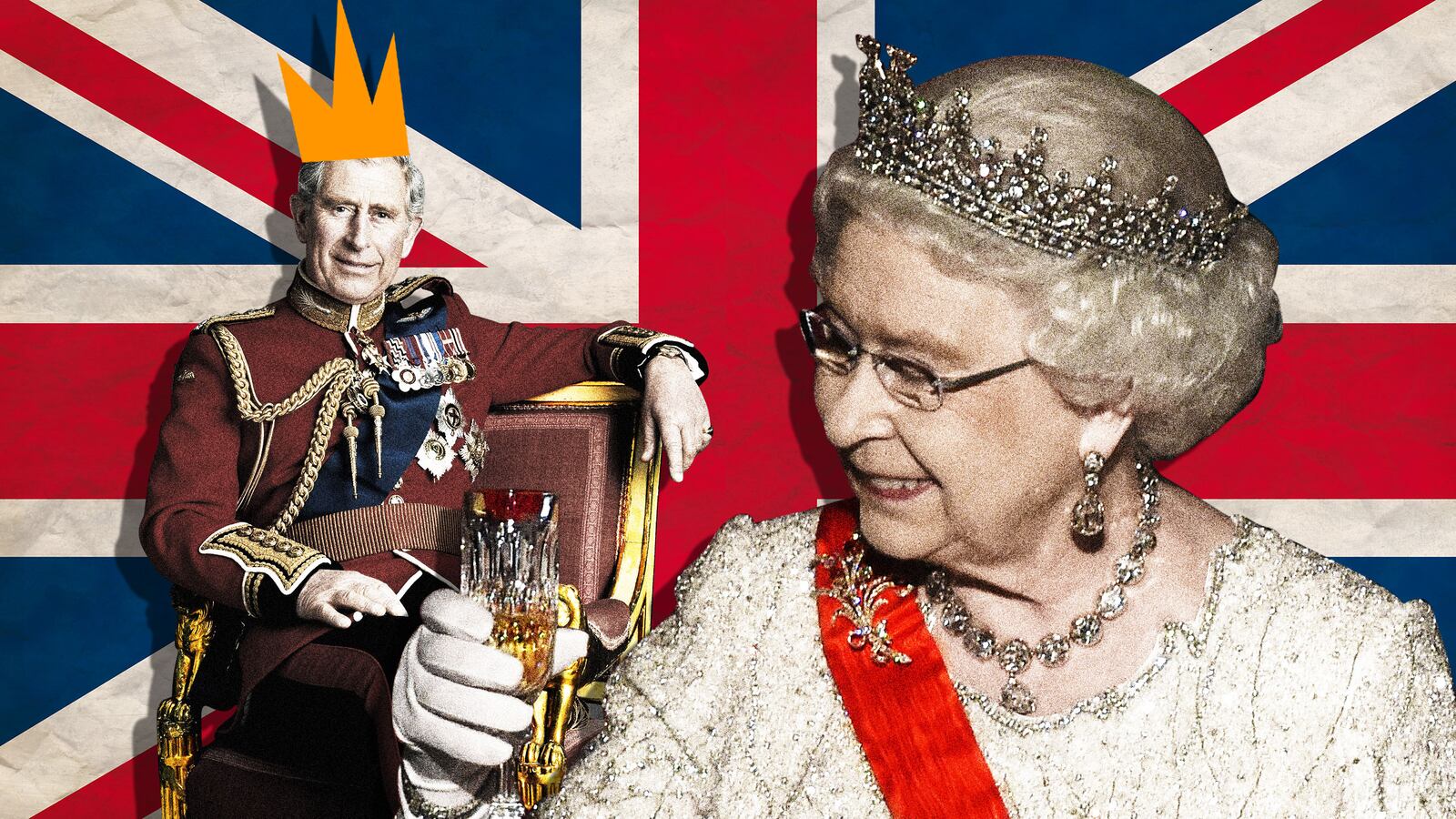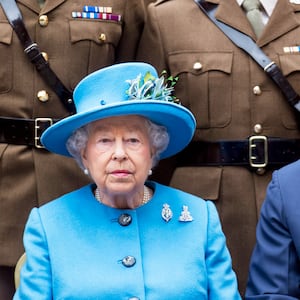The latest round of speculation about Prince Charles’ designs on the throne began with the publication of a new book by the veteran royal correspondent Robert Jobson, which contained a fascinating claim.
Jobson said that Her Majesty would retire at the age of 95 (that’s just two and a half short years away) and hand over the day-to-day business of monarchy to her son, whom she would officially appoint as regent.
It’s not a new theory—we have regularly reported the bestselling writer Christopher Andersen making the same claim on the pages of The Daily Beast—but what was different was that Jobson clearly received a high level of co-operation from within Charles’ court.
Indeed, he had even been given a sit-down interview with the prince for the book, entitled Charles at Seventy: Thoughts, Hopes and Dreams.
Then came an interview with Charles in Vanity Fair, which, helpfully for Charles, parroted what has become a key Clarence House message.
“Charles has become a proxy head of state for his mother,” the piece said, a statement which came as a surprise to those of his subjects back home in England, where Charles’ popularity ratings remain stubbornly low (just 9 percent say he is their favorite royal and only 37 percent want him to be king as opposed to 47 percent who would rather “someone else”).
The next piece of the puzzle was a BBC documentary screened in the U.K. this week, in which Charles laid down his vision for the third Caroline age, insisting he would stop ‘meddling’ in political matters when he became king.
He was proud of his interventions on subjects such as plastics, the environment and organic farming, he said, but making them was one of the privileges of not being king. He wouldn’t be so “stupid” as to continue after ascending to the throne, he vowed.
Although much was made of Charles’ work ethic in the one-hour film, with Prince Harry dutifully insisting he falls asleep at his desk and wakes with paperwork stuck to his face, the program was principally concerned with trying to present an image of a warmer, fluffier Charles; a man who “gets down on the floor” with his toddler grandchildren and makes “funny voices” when reading them Harry Potter.
The Duchess of Cornwall, also interviewed, was asked whether she thinks her husband’s future as king weighs heavily on his shoulders.
“No I don’t,” she replies. “I think his destiny will come, he’s always known it’s going to come and I don’t think it does weigh on his shoulders at all. It’s just something that’s going to happen.”
The laughter which this remark provoked across the nation must have been audible at Clarence House. Due to George VI’s early death, Charles has been heir to the throne since the age of 3, so one can hardly blame him for his impatience, to which he has occasionally copped, but denying it is a bold stab at rewriting history.
The sudden resurgence of the issue of when and how Charles will take the throne is interesting, especially as the queen has always made it clear that she has no intention of abdicating.
If you make enquiries about the “A-word” among the queen’s senior courtiers, nothing will be said on the record (indeed, no comment was forthcoming for this article).
Off the record, however, I have previously been told it’s not happening, ever; that the queen pledged to give her whole life in public service and her whole life is what she will give, just like her father, George VI, and quite unlike her uncle, King Edward VIII, who abdicated after less than a year in the job for the love of Wallis Simpson.
It is true is that Charles is doing more and more of his mother’s job. Charles is now the official head of the Commonwealth (the agglomeration of mostly former colonial nations may be increasingly meaningless to the rest of the world, but it holds a special place in the queen’s heart).
The queen has not flown long distance for over five years, meaning Charles gets to do all the official jobs overseas that would usually call for the presence of the head of state.
He has joined his mother at the opening of Parliament in place of his father.
While it is theoretically possible the queen has actually changed her mind about the concept of lifelong service and let it be known that when she hits 95 she’s going on holiday to Balmoral that summer and won’t come back unless it’s in a box, a new PR blitz by Charles isn’t going to push her one way or the other.
What this is really about is convincing a domestic and international audience of two things.
Point A (not for the first time) is that we got Charles wrong. Far from being a pampered, cold-hearted and extravagant adulterer who has only ever cared about satisfying his own desires, Clarence House is keen to sell Charles is a warm and fuzzy individual who lives and breathes for public service.
Point B is the hope that the constant repetition of the notion that Charles is in the act of “taking over” from his mother, with her consent, enables Charles to seize control of the narrative of succession. He is seeking to banish treasonous talk of the crown skipping a generation by creating a sense of the inevitability of King Charles III.
This only needs to be done, of course, because dislike of Charles is so strong (opinion polls indicate Charles’ standing has never fully recovered from damage suffered during the 1990s).
Public opinion would indeed like to see William leapfrog his father. For that, blame Princess Diana—it was she who set the cat among the pigeons in a TV interview in 1995. Diana suggested Charles did not want to be king and was not cut out for such a “suffocating” role.
Charles’ priority is to dismiss that notion as a nonsense.
But the truth is that Charles still could be denied his dream if the queen is not actually as keen on a regency as he would like to think.
Paul Burrell, Diana’s former butler, spoke for many when he told the Daily Star this week that Charles should stand aside for “the sake of the monarchy.”
He said: “I don’t think we will ever see King Charles and Queen Camilla on the throne of England.
“I know it’s his right, I know he’s the heir to the throne, I know he has waited his whole life, but his own wife said: ‘My husband is not fit for the top job.’
“I don’t think he will get there. I think by the time the queen dies—and she will live to be queen as long as there is breath in her body—she will die aged 101, 102, or 103, maybe. Her mother was almost 102 when she died. Longevity is in the family. By the time Charles gets there, he’s going to be 80.”
Burrell is right. The brutal logic of time makes it clear that the age of King Charles isn’t, perhaps, as inevitable as he would like us to think.







